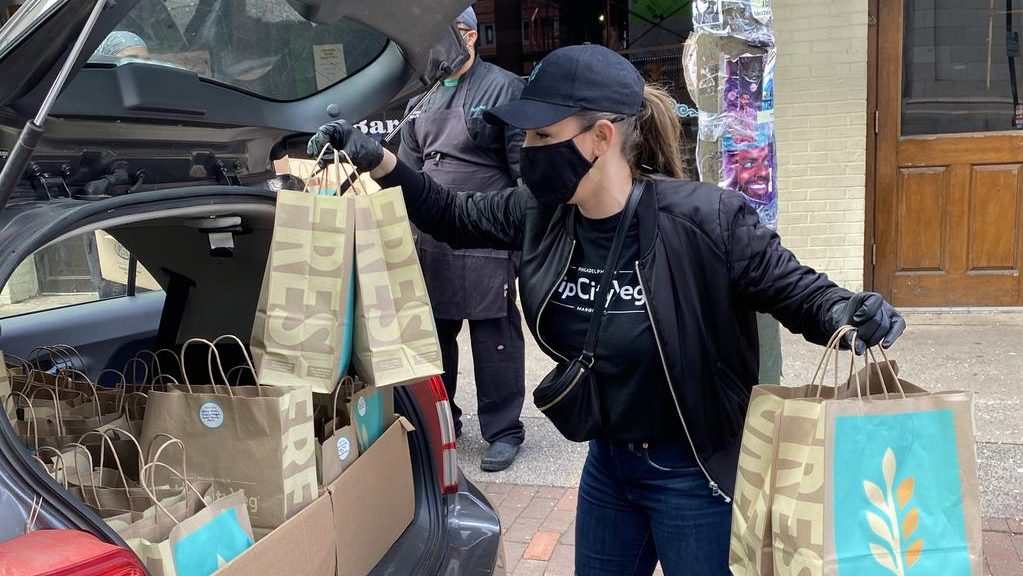Article originally published in the Philadelphia Business Journal on April 27, 2020
We are going through a period of rapid disruptive change. Covid-19 has upended our lives to a greater degree in such a short period of time than any other event in modern history.
I spoke with three business leaders in the hard-hit restaurant, hotel and fitness businesses to learn how they are coping with the impact of the pandemic. In addition to a laser focus on cash flow and in some cases re-imagining their businesses, these leaders are also focused on maintaining a sense of community with their employees and providing a great customer experience.
The commonly used phrase “When the going gets tough, the tough get going” describes the persistence and resilience of the business leaders I spoke with. One said to me, “The impossible is possible!” It is this kind of attitude that will get them and their businesses through the pandemic.
The values embedded in the culture of these companies – making difficult choices to do the right thing – drive decisions. In many cases, senior leadership teams have stopped taking or significantly reduced their compensation. To avoid laying off salaried employees critical to the survival of these companies, their compensation was reduced. This is especially difficult when asking these individuals to work more hours to ensure the company survives. Unfortunately, in many cases it was necessary to lay off hourly employees. Their loss of income is being partially offset by state unemployment benefits and one-time federal stimulus payments.
So, how are these business leaders coping with the pandemic?
Nicole Marquis
As founder and CEO, Nicole Marquis leads Marquis and Co., a restaurant holding company. HipCityVeg is Marquis’ signature fast-casual restaurant concept, which serves 100% plant-based food. The company was founded eight years ago and was operating at seven locations in Philadelphia and Washington, D.C. Marquis was forced to close one location due to the pandemic.
For laid-off employees, Marquis established a fund to provide financial assistance while they are out of work. To maintain a sense of community, she keeps her employees updated via email.
Like many restaurateurs, Marquis has focused on customer experience. The six locations that remain open provide curbside pick-up and free delivery. Not only does this keep six of her restaurants operating, but this also preserves the awareness of the HipCityVeg brand in the marketplace and maintains/builds brand loyalty.
Marquis has taken a proactive role in helping her industry by launching and leading “Save Philly Restaurants,” comprising 65 restaurant owners operating over 200 venues to create awareness of how precarious the restaurant scene is in Philadelphia.
I asked Marquis what keeps her going. She responded, “I am blown away by my crew and how they inspire me. They uplift and motivate me. It’s heartwarming.” This is the kind of leader Marquis is.
Rob Fishbein
Rob Fishbein is an individual who helps people achieve their fitness goals. In addition to his full-time job with the city of Margate, New Jersey, he leads Fishbein’s Beach Workout Crew, a fitness company he founded in 2004. Fishbein also coaches middle school and high school basketball teams. He has even trained basketball players heading to the NBA.
Fishbein and his brand are well known throughout the Margate beach region. He consistently keeps his brand in front of his clients through daily social media posts in which he celebrates the achievements of his fitness clients and the teams that he coaches.
Since businesses were ordered to close, Fishbein no longer holds his 5 a.m. workout sessions on the beach. He has followed the suggestions of his clients and moved his classes online via Zoom at 10 a.m. and 1 p.m. and gives advice on how to stay fit during the pandemic. He has kept his loyal group of clients by giving them a great experience.
Jerry Skot
As general manager of the Holiday Inn Express in Fort Washington, Skot was proactive in pivoting his hotel to financially survive the sharp and steep falloff in business and leisure travel. During the second week in March, he watched cancellations pour in for the second half of March, April and May. Skot knew he needed to rapidly react.
He immediately realigned his room rates consistent with the new market reality to attract the dwindling number of visitors to his geographic area. Skot started to actively promote on social media the value proposition of his hotel – market-appropriate room rates, great guest experience and the high-quality rankings his hotel has consistently received over the years.
Skot reached out to various groups who he knew would still need a hotel for overnight stays. The result – his hotel remains operating while some of his competitors have closed.
Skot is also sensitive to his employees’ concerns for their own safety. He listens to them to ensure he has their input.
What are the common attributes of Marquis, Fishbein, Skot and other leaders like them? They are proactive and have an innate sense of when and how to pivot their businesses to adapt to and overcome the challenges thrown at them by the pandemic. They are loyal to their employees. They sense what they need to do to provide a great experience for their customers. They know how to maintain and build the value of their brand. These are lessons for all business leaders.
Out of disruption comes opportunity. We will not bounce back: we will spring forward, adopting many of the new ways we will conduct business and live our lives. Change is the only constant in life. The leaders and businesses that adapt to change will not only survive but will prosper.
Stan Silverman is founder and CEO of Silverman Leadership and author of “Be Different! The Key to Business and Career Success.” He is also a speaker, advisor and widely read nationally syndicated columnist on leadership, entrepreneurship and corporate governance. He can be reached at Stan@SilvermanLeadership.com.

